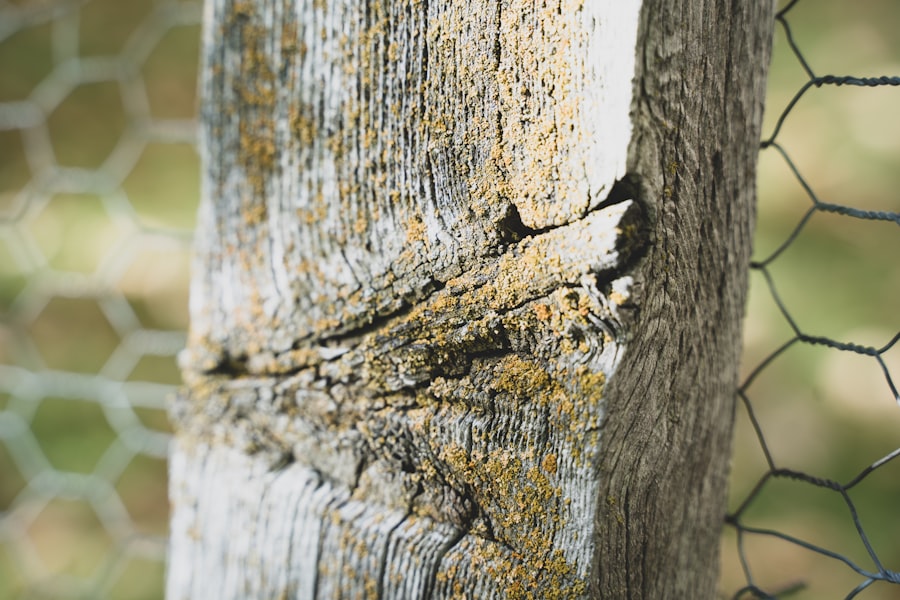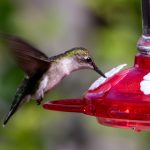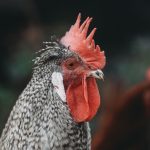Chickens are naturally curious and social animals with a strong instinct to forage and explore their environment. They are easily startled by sudden movements or loud noises. Understanding these behaviors is essential for protecting them from predators.
Chickens are most vulnerable at night when roosting, as they are less alert and more susceptible to attacks. During the day, they are more active and vigilant but still require protection from aerial predators like hawks and owls. Chickens have a natural instinct to roost at night, seeking high perches as a defense mechanism against ground predators.
They maintain a strong sense of hierarchy within their flock, with dominant birds occupying the highest roosting spots. Chickens are social animals and feel safer in groups, making it important to provide a secure and comfortable environment for communal roosting. By understanding chicken behavior, owners can implement effective strategies to keep their flock safe and secure.
This includes providing adequate shelter, appropriate roosting options, and creating an environment that allows chickens to exhibit their natural behaviors while remaining protected from potential threats.
Table of Contents
- 1 Providing Adequate Shelter and Roosting Options
- 2 Implementing Physical Barriers
- 3 Using Visual Deterrents
- 4 Employing Sound Deterrents
- 5 Creating a Distraction
- 6 Consistency and Monitoring
- 7 FAQs
- 7.1 What are the reasons chickens might be on the roof?
- 7.2 Why is it important to keep chickens off the roof?
- 7.3 What are some effective methods to keep chickens off the roof?
- 7.4 Are there any potential risks or dangers associated with chickens being on the roof?
- 7.5 What are some considerations for keeping chickens in a safe and appropriate environment?
Key Takeaways
- Chickens are naturally curious and will explore their surroundings, including areas where they are not supposed to be.
- Providing adequate shelter and roosting options can help prevent chickens from wandering into unwanted areas.
- Implementing physical barriers such as fences and netting can effectively keep chickens out of specific areas.
- Visual deterrents like scarecrows and reflective objects can help deter chickens from entering restricted areas.
- Employing sound deterrents such as motion-activated alarms or clappers can startle chickens and discourage them from entering unwanted areas.
- Creating a distraction with treats or toys can redirect the chickens’ attention away from restricted areas.
- Consistency and monitoring are key to ensuring that the deterrent methods are effective in keeping chickens out of unwanted areas.
Providing Adequate Shelter and Roosting Options
Secure Coop: The First Line of Defense
A secure coop is essential to protect your chickens from predators such as foxes, raccoons, and weasels. The coop should be made of sturdy materials and have a secure locking mechanism to prevent predators from gaining access. Additionally, the coop should be elevated off the ground to prevent digging predators from burrowing underneath.
Roosting Options for a Happy Flock
Inside the coop, there should be plenty of roosting options for the chickens to choose from. Roosting bars should be placed at varying heights to accommodate the natural hierarchy within the flock. Providing enough space for each chicken to roost comfortably is important for their well-being and safety.
A Safe Outdoor Run
In addition to a secure coop, providing a safe outdoor run for your chickens is also important. The run should be enclosed with sturdy fencing to prevent predators from gaining access. The fencing should also be buried into the ground to prevent digging predators from getting in. Providing adequate shelter within the run, such as covered areas or shelters, can give the chickens a place to hide if they feel threatened.
Implementing Physical Barriers

Implementing physical barriers is an effective way to protect your chickens from predators. This can include using hardware cloth to cover windows and vents in the coop to prevent predators from gaining access. Additionally, burying hardware cloth around the perimeter of the coop and run can prevent digging predators from getting in.
Using predator-proof fencing around the entire property can also help keep predators at bay. This type of fencing should be sturdy and tall enough to prevent climbing predators from getting over it. By implementing physical barriers, you can create a secure environment for your chickens to live in.
Another physical barrier that can be effective in protecting chickens from aerial predators is the use of netting or wire mesh over the top of the outdoor run. This can prevent hawks and owls from swooping down and grabbing a chicken. It’s important to make sure that the netting or wire mesh is securely fastened and does not sag, as this can still allow predators to gain access.
By implementing physical barriers, you can create a safe and secure environment for your chickens to roam freely without the fear of predators.
Using Visual Deterrents
Visual deterrents can be an effective way to keep predators away from your chickens. This can include using scarecrows, predator decoys, or reflective objects such as CDs or mirrors. Placing these visual deterrents around the coop and run can help deter predators by making them feel exposed and vulnerable.
Additionally, using motion-activated lights or sprinklers can startle predators and make them think twice about approaching the area. By using visual deterrents, you can create a hostile environment for predators, keeping your chickens safe and secure. Another visual deterrent that can be effective in protecting chickens from aerial predators is the use of predator eyes balloons or kites.
These balloons or kites have large, intimidating eyes that can scare away hawks and owls. By placing these visual deterrents around the outdoor run, you can create a sense of danger for aerial predators, keeping your chickens safe from harm. By using visual deterrents, you can create a safe and secure environment for your chickens to thrive.
Employing Sound Deterrents
Employing sound deterrents can be an effective way to keep predators away from your chickens. This can include using motion-activated alarms or radios set to loud noises to startle predators when they approach the coop or run. Additionally, using predator calls or distress calls of other animals can signal danger to predators, making them think twice about approaching the area.
By employing sound deterrents, you can create a hostile environment for predators, keeping your chickens safe and secure. Another sound deterrent that can be effective in protecting chickens from aerial predators is the use of predator calls or distress calls of other birds. These calls can signal danger to hawks and owls, making them think twice about approaching the area.
By employing sound deterrents, you can create a safe and secure environment for your chickens to thrive.
Creating a Distraction

Diverting Attention with Decoys and Noise
Using decoy food sources or hiding treats in different areas of the property can distract predators and lead them away from the coop and run. Additionally, noise-making devices such as wind chimes or bells can create a disturbance that makes predators hesitant to approach the area.
Natural Barriers and Predator-Resistant Plants
Planting predator-resistant plants around the coop and run can create a natural barrier that deters predators from approaching the area. These plants can be an effective way to keep predators at bay without using harsh chemicals or expensive fencing.
Providing Cover with Dense Shrubs and Bushes
Planting dense shrubs or bushes around the perimeter of the property can provide cover for chickens to hide in if they feel threatened. This can be a lifesaver in the event of a predator attack, giving your chickens a safe place to escape to.
Consistency and Monitoring
Consistency and monitoring are key factors in protecting your chickens from predators. Consistently checking for any signs of predator activity around the coop and run is important in preventing attacks. This includes looking for tracks, droppings, or any signs of digging or tampering with fencing or barriers.
Additionally, monitoring your chickens’ behavior can give you insight into any potential threats they may be facing. If they seem agitated or fearful, it’s important to investigate and address any potential predator issues immediately. Consistency in implementing deterrents such as visual or sound deterrents is also important in keeping predators at bay.
Regularly checking that these deterrents are in working order and making adjustments as needed can help maintain a hostile environment for predators. By consistently monitoring and addressing potential threats, you can create a safe and secure environment for your chickens to thrive. In conclusion, understanding the behavior of chickens is crucial in implementing strategies to protect them from predators.
Providing adequate shelter and roosting options, implementing physical barriers, using visual and sound deterrents, creating distractions, and maintaining consistency in monitoring are all important factors in keeping your chickens safe and secure. By taking these measures, you can create a hostile environment for predators while providing a safe and comfortable space for your chickens to thrive.
If you’re looking for more information on keeping chickens, you might be interested in an article on chicken coop options in Chester, SC. This article provides valuable insights into different coop designs and how they can help keep your chickens safe and secure.
FAQs
What are the reasons chickens might be on the roof?
Chickens might be on the roof for various reasons, including seeking a high vantage point, looking for insects or food, or simply exploring their surroundings.
Why is it important to keep chickens off the roof?
It is important to keep chickens off the roof to prevent potential damage to the roof, ensure the safety of the chickens, and maintain a clean and orderly environment.
What are some effective methods to keep chickens off the roof?
Some effective methods to keep chickens off the roof include trimming nearby trees and bushes, providing alternative elevated perches for the chickens, using deterrents such as reflective objects or noise makers, and ensuring the chickens have enough space and enrichment in their designated area.
Are there any potential risks or dangers associated with chickens being on the roof?
Yes, there are potential risks and dangers associated with chickens being on the roof, including potential injury to the chickens from falling or getting stuck, damage to the roof from scratching or pecking, and potential hygiene issues from droppings.
What are some considerations for keeping chickens in a safe and appropriate environment?
When keeping chickens, it is important to provide a secure and spacious coop or enclosure, ensure access to food and water, provide appropriate perches and nesting areas, and regularly clean and maintain the chicken’s living space.
Meet Walter, the feathered-friend fanatic of Florida! Nestled in the sunshine state, Walter struts through life with his feathered companions, clucking his way to happiness. With a coop that’s fancier than a five-star hotel, he’s the Don Juan of the chicken world. When he’s not teaching his hens to do the cha-cha, you’ll find him in a heated debate with his prized rooster, Sir Clucks-a-Lot. Walter’s poultry passion is no yolk; he’s the sunny-side-up guy you never knew you needed in your flock of friends!







